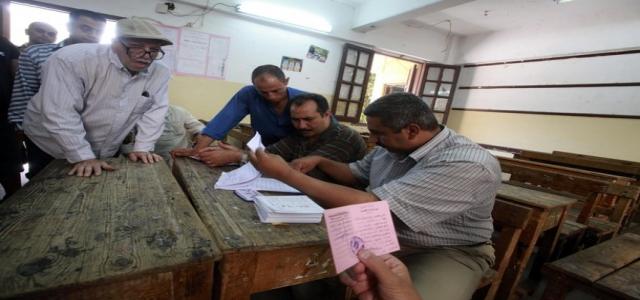Concerns over transparency in the 2010 elections has not only divided the Egyptian political scene into boycotting and participating parties but has also contributed to fueling internal rifts between opposition parties and movements.
Egypt’s state-run Al-Akhbar's opinion page posts an article by Sayed Alnaggar who argues that boycotting elections clearly indicates a party’s lack of popularity as well as its weaknesses. He stressed that if the opposition was truly committed to democratic reform, they would seek it through legal means in parliament.
The independent Alshorouk newspaper contains a report that several Wafd party leaders have decided to boycott the upcoming elections despite the party's official decision to participate. The article reports that the most prominent boycotting figures include current MP, Allam Abdul Moneim, assistant secretary general, Hussein Mansour, and member of the politburo, Essam Shiha.
According to Wafd, Abdul Moneim's decision to boycott was made because of the absence of judicial monitoring in the upcoming elections. The party’s newspaper, Al-Wafd devotes an entire page to an interview with the head of the boycotting Democratic Front Party, Ossama al-Ghazali Harb, where he maintains that his party is not boycotting the principle of elections, but simply elections at this particular time. Harb highlighted that the party’s decision to boycott this year’s elections was an attempt to pressure the government to establish guarantees of electoral integrity.
Further news underscores the ongoing competition between the ruling National Democratic Party, the Muslim Brotherhood, and the internal NDP, as well as apprehension concerning the integrity of the elections.
The NDP has busied itself accusing MB candidates of abusing religious symbols for electoral purposes, while a court order has allowed the slogan to be used.
Sadly, however, Ashraf al-Barbari, writing for Al-Shorouk, grieves the fact that Egyptians have become accustomed to the NDP’s oppression along with the electoral commission's silence on these transgressions. He does however, excuse the commission stressing that members cannot be expected to easily shed 30 years of no separation between the state and the NDP.
Al-Shorouk also reports on its front-page that Judge Sayed Abdul Aziz, head of Cairo’s Court of Appeal and president of the Supreme Electoral Commission announced that government ministries will be responsible for selecting the 200,000 employees required to head and staff secondary electoral committees, who will be responsible for monitoring ballot boxes and vote counting.
The law mandates that judges head general committees, responsible for announcing election results.







